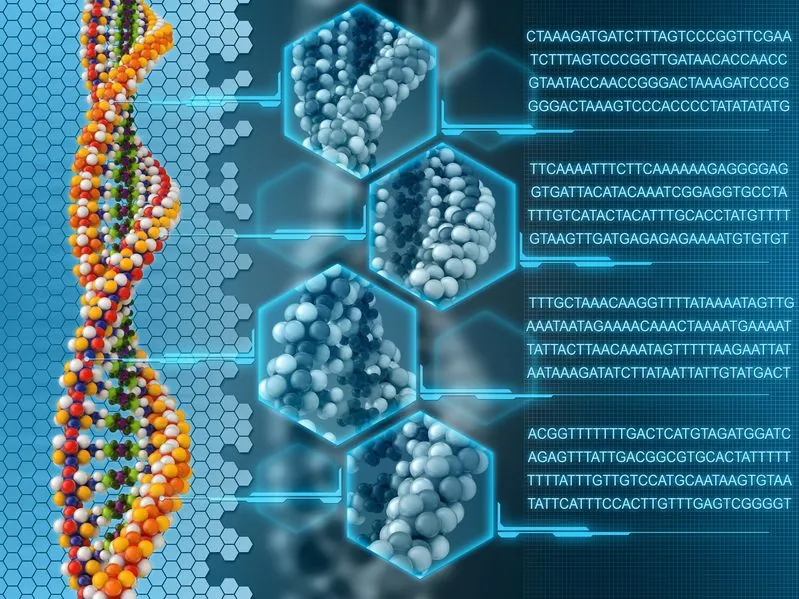In the intricate web of biological sciences, bioinformatics is a beacon of discovery and innovation. This multidisciplinary field amalgamates biology, computer science, and mathematics to decode the enigmatic language of life. Bioinformatics research has revolutionized our understanding of genetics, molecular biology, and beyond, ushering in a new era of scientific exploration. In this article, we’ll delve into the captivating world of bioinformatics research, exploring its applications, methodologies, and profound impact on various facets of life.
The Role of Computational Tools in Bioinformatics
Computational tools and algorithms serve as the backbone of bioinformatics research. These tools empower scientists to process vast datasets, model complex biological systems, and simulate intricate molecular interactions. From sequence alignment algorithms to molecular docking simulations, these computational methods accelerate the pace of research and enable scientists to test previously unimaginable hypotheses.
DNA Sequencing and Genome Analysis
One of the cornerstones of bioinformatics is DNA sequencing and genome analysis. The ability to sequence entire genomes has provided invaluable insights into the blueprint of life. Bioinformatics algorithms decipher these sequences, identifying genes, regulatory regions, and potential disease-causing mutations. This information advances our understanding of genetics and guides personalized medicine and genetic therapies.
Protein Structure Prediction and Analysis
Understanding the three-dimensional structure of proteins is paramount in deciphering their functions. Bioinformatics plays a pivotal role in predicting protein structures through computational modeling. This information aids in drug design, as researchers can identify potential binding sites and develop targeted therapies for various diseases.
Functional Genomics and Transcriptomics
Functional genomics explores the dynamic activities of genes within a cell or organism. Transcriptomics, a subset of functional genomics, involves studying gene expression patterns. Bioinformatics tools analyze vast transcriptomic data to unravel how genes are regulated and how they respond to different stimuli.
Evolutionary Biology and Phylogenetics
Bioinformatics contributes significantly to evolutionary biology by reconstructing the evolutionary relationships among species. Based on genetic data, phylogenetic analyses unveil the branches of the tree of life, shedding light on the common ancestors and the processes of speciation.
Drug Discovery and Development
The pharmaceutical industry benefits immensely from bioinformatics in drug discovery. Virtual screening of compounds, molecular docking studies, and analysis of drug-target interactions expedite the identification and development of potential therapeutic agents.
Personalized Medicine and Healthcare
Bioinformatics enables personalized medicine by analyzing an individual’s genetic makeup to tailor treatments. This approach maximizes treatment efficacy while minimizing adverse effects, marking a paradigm shift in healthcare.
Ethical Considerations in Bioinformatics
As bioinformatics becomes more integrated into research and healthcare, ethical concerns arise. Privacy, data security, and consent are critical issues that demand careful consideration to ensure responsible and transparent use of genetic information.
Future Directions and Innovations
The future of bioinformatics holds exciting prospects. Advances in artificial intelligence, machine learning, and big data analytics will empower researchers to extract deeper insights from biological data, paving the way for breakthrough discoveries and transformative applications.
Conclusion
Bioinformatics research emerges as a guiding light in the intricate tapestry of life sciences, unraveling the mysteries encoded within our genetic fabric. Through the harmonious marriage of computer science and biology, we have gained unprecedented insights into the mechanisms of life. As we journey into the future, bioinformatics will continue to shape the landscape of scientific inquiry, propelling us toward a deeper understanding of ourselves and the living world.
FAQs
- What is bioinformatics research? Bioinformatics research uses computational tools to analyze biological data and gain insights into genetics, molecular biology, and related fields.
- How does bioinformatics impact drug discovery? Bioinformatics accelerates drug discovery by predicting drug-target interactions and identifying potential therapeutic compounds.
- What is the significance of personalized medicine? Personalized medicine, enabled by bioinformatics, tailors medical treatments based on an individual’s genetic profile, increasing treatment precision.
- What are some ethical concerns in bioinformatics? Ethical considerations in bioinformatics include data privacy, security, and the responsible use of genetic information.
- What does the future hold for bioinformatics? The future of bioinformatics involves advancements in AI, machine learning, and data analytics, leading to transformative discoveries in biological research.






